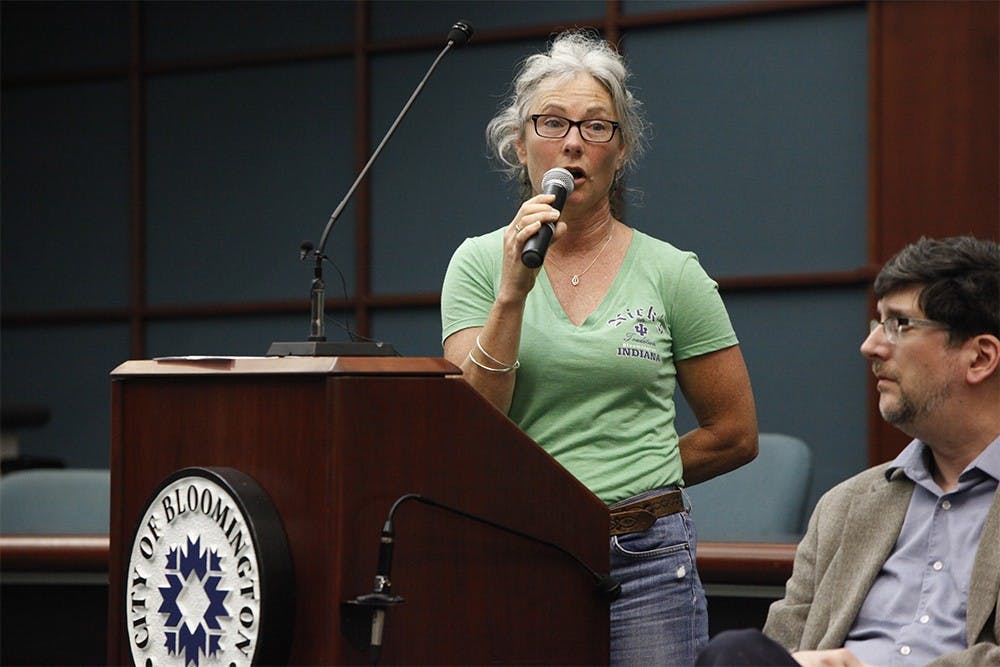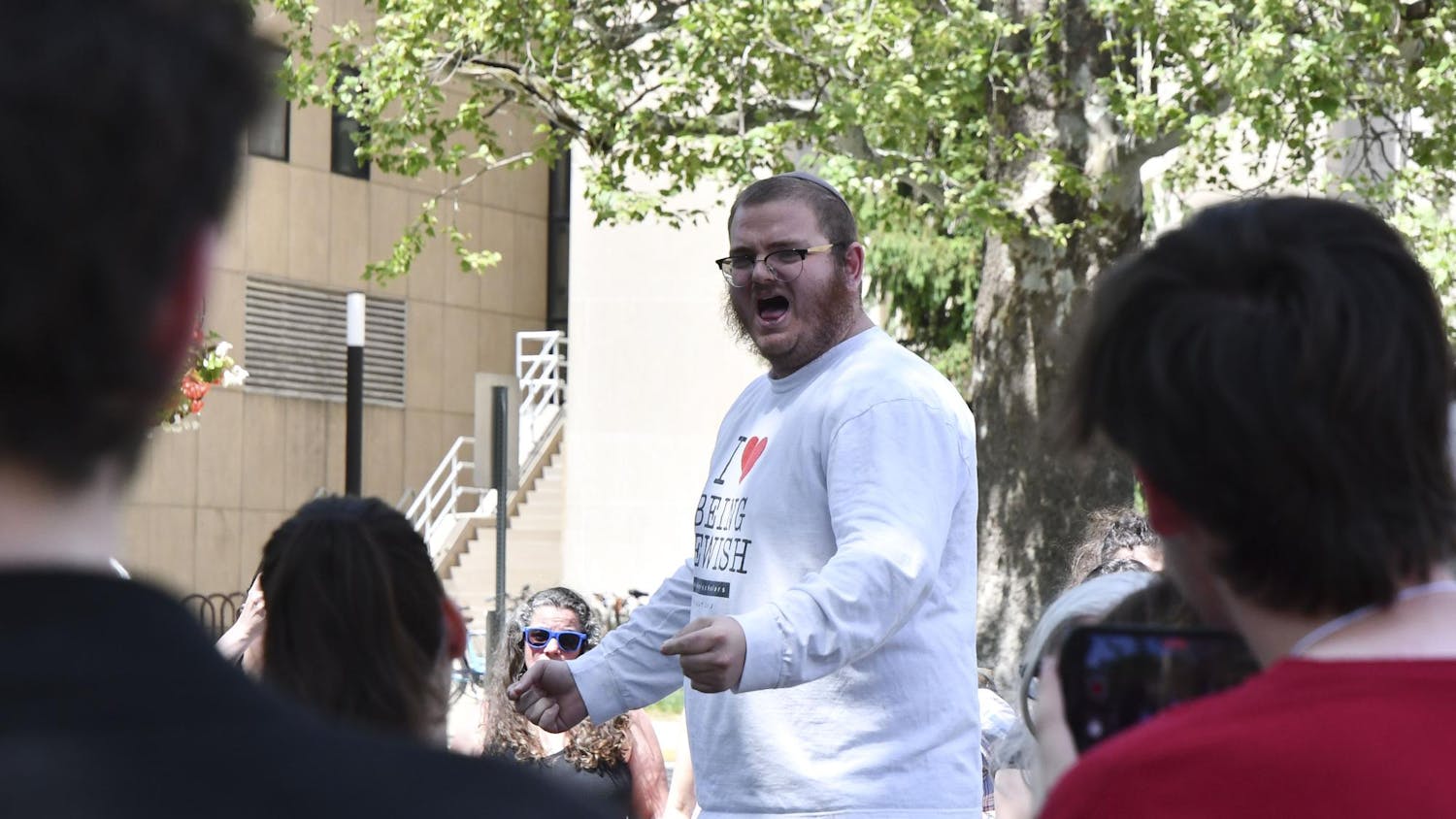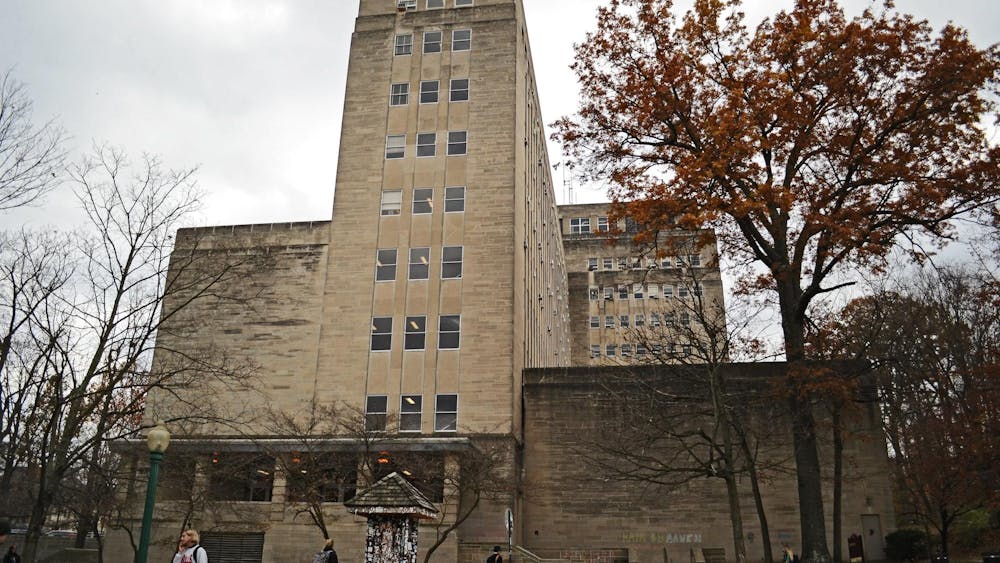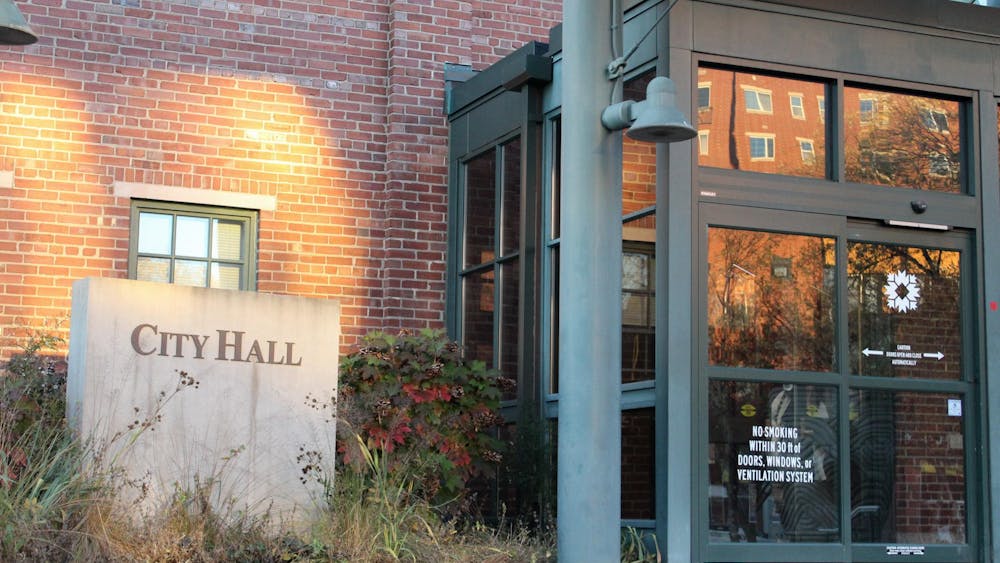“What are we afraid of and why are we afraid of it?”
The forum was planned in response to the recent controversy regarding homelessness, crime and panhandling on Kirkwood Avenue. The debate escalated to the point that what was scheduled to be a a normal meeting was refocused to provide a platform for those who wanted to pose share their questions insights.
“To me, one of the simplest solutions is not to try to enact some new law or regulation, but to simply change how we think,” Marshall, a member of the Decarcerate Monroe County coalition, said in her opening remarks.
The meeting was crowded with people who had very different ways of thinking and responding to Marshall’s questions.
Many said they had never felt endangered when walking down Bloomington’s main street. That the time they’ve spent interacting with Bloomington’s homeless has been cordial and pleasant. That they’re more afraid of the drunken IU students wandering the streets at night than anyone holding a cardboard sign.
“In many situations I have been confronted with people who were experiencing poverty, people who were experiencing homelessness, people who were on drugs or drunk,” Marshall, who formerly worked full-time at the Interfaith Homeless Shelter, said. “There was never a single time during those experiences when I felt as though I was in danger. When treated with respect, people respond with respect.”
Other attendees admitted to feeling scared when they see people doing drugs or becoming aggressive. They complained that their homes had been broken into. They complained that they have repeatedly cleaned up fecal matter and used needles left on their properties by the panhandlers spending time in People’s Park. They emphasized that they don’t lack compassion or sympathy for the problems being faced by the community’s homeless, but they feel that their own rights are being violated.
“When I see some of the law being broken and not enforced, it breaks my heart,” said Susan Bright, a co-owner of Nick’s English Hut whose letter titled “Bum Commerce” triggered the debates on the topic. “I want to curtail the criminal activity and provide a safe environment for our employees visitors and friends.”
Bright suggested this might be done by creating a law making panhandling illegal within 20 feet of any parking meter. Bright noted that people are often approached by panhandlers at parking meters because they already have their wallets in their hands.
Byron Bangert, another panelist and member of the Bloomington Human Rights Commission, pointed out that this law might be excessive since it would, in effect, prevent anyone from panhandling on Kirkwood.
“The answer’s not just more programs costing more money, it’s also how we relate to the people we’re talking about,” Bangert said. “We’re talking about human beings, their lives their circumstances and how they are part of this community. There’s no one single response for everyone in this room tonight.”
Other solutions suggested included making alcohol illegal within Bloomington city limits, using city funds to hire two new patrol officers for the area in question and providing more year-long shelter services for the homeless.
“The housing first approach is the answer,” said Elaine Guinn, the executive director of New Hope Family Shelter who has experienced homelessness herself, referring to programs that provide shelter to the homeless without requiring that they be sober before benefiting from the shelter’s services. “My father was homeless off and on for about 22 years and in the course of that time he cost society a lot of money in jail fees. We could have bought him a few houses with that.”
Two community members currently experiencing homelessness were present to share their thoughts on the topic.
“This homeless issue is a complicated one and it’s not anything I could cover in two minutes,” Ray Jordan, a homeless man residing in Bloomington, said. “I want to say that the problems many people see are caused by a select group of people. It’s not everybody. I would ask any of you not to put a blanket over all of us. Deal with what’s in front of you.”
Though more than 15 people lined up to speak after the panelists’ opening remarks, more than an hour passed before a person approached the microphone with a ?question.
“I want to know how we can start to deal with situations where we’re not comfortable, when we don’t know how to act or how to help,” William Morris, a local attorney, said. “What can we do to make the situation better?”
Talking seems to be the first step. Though the room was divided on the issues at hand, it seemed that many community members are taking steps to work together. When the cameras shut off and the crowd dispersed, Bright and Marshall shared a hug and words of encouragement, promising to continue their talks to create a better Bloomington.






